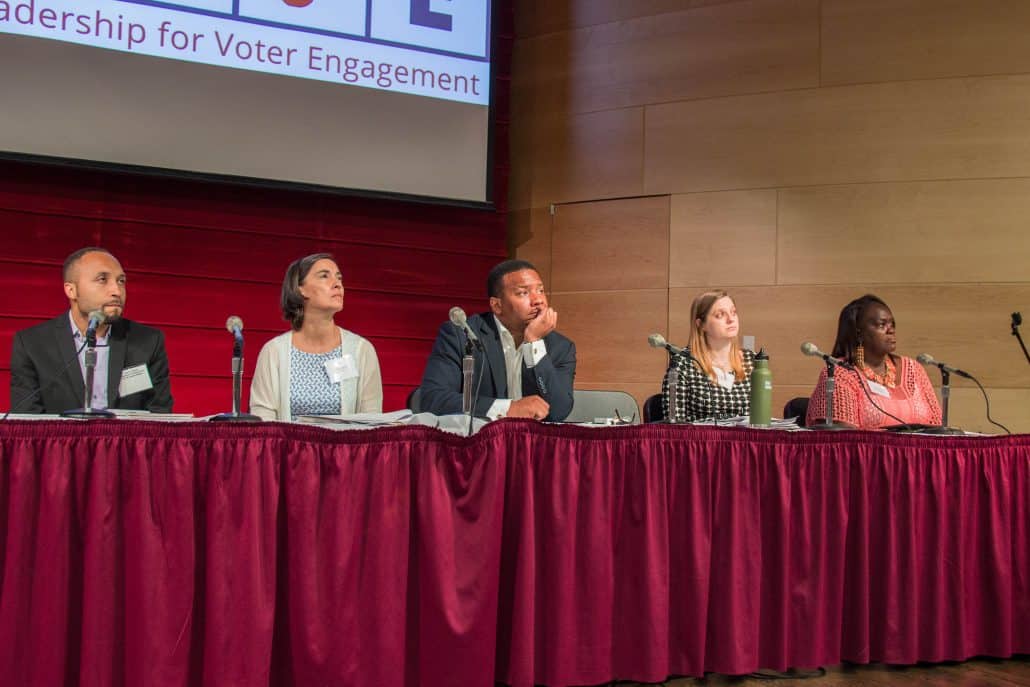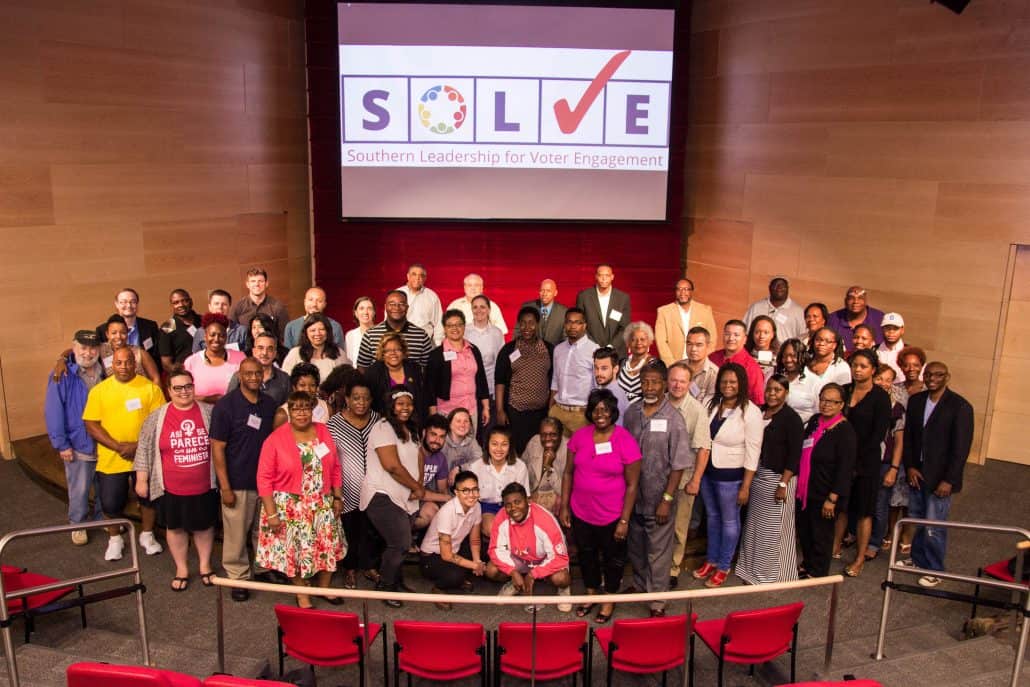SOLVE (Southern Leadership for Voter Engagement) convened for their 3rd conference on June 17 and 18th in New Orleans. This year’s theme was Strong, Persistent, and Determined Action: SOLVE after Shelby, a reference to the Supreme Court Case, Shelby County v. Holder, which ultimately struck down Section 4 of the Voting Rights Act as unconstitutional.
Fred McBride of the Southern Coalition for Social Justice explains the title: “We chose as our theme: Strong, Persistent, and Determined Action, SOLVE After Shelby, because the convening was necessary to bring all of these southern voices together to not simply discuss what we already know, but hear from those impacted, develop a strategy, strengthen our SOLVE voting rights network, and aggressively combat these continuing struggles in exercising the right to vote.”
SOLVE is a multi-generational and multi-racial leadership group for increased civic participation in the South. In order to better collaborate and support one another, a convening was established to achieve the following:
- Bring together leaders from across the south to discuss the current landscape for fighting voter suppression efforts Connect with legal support and resources.
- Assess state-by-state capacity to address Voting Rights challenges and advocate for policies to enfranchise minority voters.
- Discuss opportunities for strategic coordination and develop a framework to implement them.
- Determine collective response to improve the Voting Rights Act Fix.
The two day conference started off with a welcome, followed by panels such as “Voting Rights in the South post Shelby”, moderated by Leroy Johnson of Southern Echo with panel members discussing proof of citizenship requirements, restoration of the Voting Rights Act, and state-by-state issues, including our very own Anita Earls speaking to the political gerrymandering and voter suppression in North Carolina.

Another panel moderated by SCSJ’s own Fred McBride discussed redistricting and gerrymandering throughout the South, including a panelist speaking to the prison gerrymandering and the “dilution of voting power.”
The first day ended with a practical look at the 2016 election season, the first presidential race in which the Voting Rights Act would not apply. A panel discussed the various manner of election protection and digital tools to counter the effects of the Shelby case.
The next day focused primarily on communications with a panel discussing best methods to discuss voter rights issues with the media. The conference transitioned into innovative approaches to the issues the American South faces such as youth engagement, intergenerational movement, identification alternatives, and automatic voter registration.
After a working lunch with respective states or regions, the conference wrapped up with state reports, best approaches and ways to look forward in a post-Shelby election world.
For more information on the conference and participating organizations, visit http://www.solve.network/

